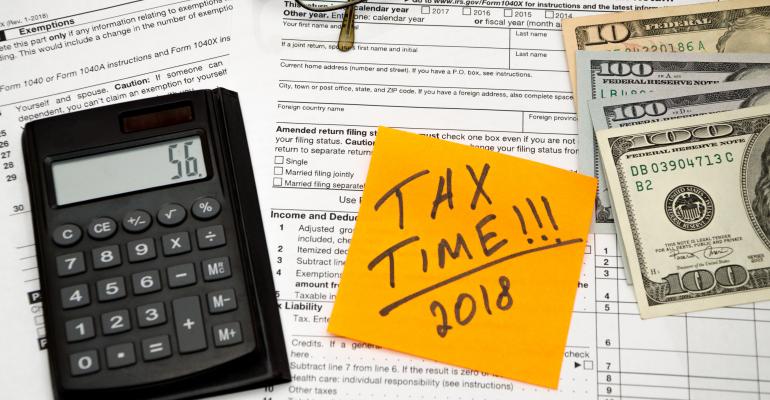For nearly 30 years, tax professional Ken Van Damme, a partner in the private client services practice at professional services firm EY, has advised high-net-worth (HNW) individuals on their commercial real estate holdings.
“I’ve kind of been there, done that and seen a lot,” Van Damme says.
During his career, one of the biggest tax changes he’s seen that impact HNW investors is the federal Tax Cuts and Jobs Act of 2017. Van Damme says his unofficial “scorecard” of the 2018 tax returns he’s prepared thus far shows most of his clients have enjoyed “substantial” benefits from the tax overhaul—benefits that have offset any tax hikes they’ve absorbed.
Van Damme chatted with NREI about the implications of the 2017 law for HNW real estate investors and how investors should plan for the future.
This Q&A has been edited for length, style and clarity.
NREI: In terms of tax planning for next year, what advice do you have for high-net-worth individuals who own commercial real estate?
Ken Van Damme: I would encourage them to talk to their tax professional to understand their 2018 tax return—how it is different compared with previous years because of the Tax Cuts and Jobs Act of 2017. First and foremost, they should talk to their tax professional and gain some insight as to how the change in the tax law affected them.
Just have that dialogue about the 2018 tax return and the near-term future—plans for 2019, ’20, ’21. As you have that dialogue, opportunities or possible pitfalls will just come up. A good tax professional will be able to steer you toward the benefits and try to avoid the pitfalls.
In some cases, the Tax Cut and Jobs Act was very beneficial to the real estate industry and high-net-worth individuals and families, but not without complexities. As a profession, we spent the past year learning about these complexities and how to apply them to our clients. As I talk to my clients, there are a lot of questions: How does it apply to me? How does it benefit me? How does it hurt me? It’s an education process.
Everybody’s tax situation is unique. How these rules apply to one person compared with another person differ based on a person’s real estate holdings, how long they’ve owned them, what the cash flow is, what the property types are.
NREI: What are some of the common questions you’ve gotten this year from your clients, particularly in the wake of the Tax Cuts and Jobs Act?
Ken Van Damme: The most popular one, I think, has been about how to benefit from the 20 percent pass-through deduction. For example, if somebody has $1 million in net income from a qualified business, which can include rental real estate, maybe they could pay taxes on only $800,000 instead of paying taxes on $1 million. That’s it in its simplest form.
There are eligibility requirements, so a lot of the questions I get are about how they can become eligible for the 20 percent deduction and, if they are not able to get the full 20 percent, are they able to deduct 10 percent, 12 percent or 15 percent. My clients want to make sure they maximize their ability to get as much as they can from that 20 percent pass-through deduction.
(In some cases, the Tax Cuts and Jobs Act allows a 20 percent income tax deduction for non-corporate taxpayers—individuals, trusts and estates—on business income from pass-through businesses such as sole proprietorships, partnerships, LLCs and S corporations.)
Clients have also been asking about the bonus depreciation deduction, which allows a taxpayer to take a 100 percent deduction on qualified property that they acquire and place into service. In addition, they’ve been asking about the interest limitation in the real estate industry.
NREI: What tax mistakes have you seen from HNW investors who’ve previously prepared their own tax returns?
Ken Van Damme: As I think about my career and the tax returns I’ve seen self-prepared by taxpayers, one of the mistakes I have often seen involves the depreciation schedules. Maybe they’re not mistakes—they’re just missed opportunities. A person preparing their own taxes may have missed the ability to take some accelerated tax depreciation deductions that they were absolutely entitled to.
I would caution somebody preparing their own tax return, especially as it relates to the new provisions under the Tax Cuts and Jobs Act. For example, the new interest limitation enables a taxpayer to elect to avoid the limitation for real estate activities. If they don’t know about this option, it could be a horrible mistake to not make the election.





